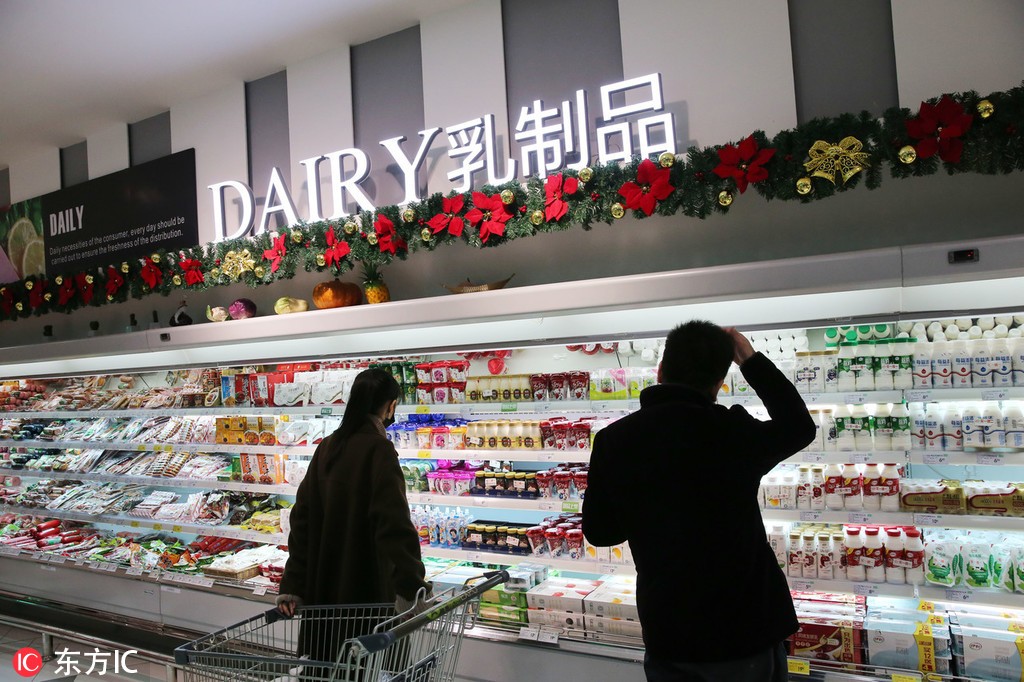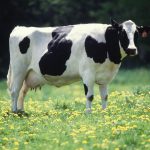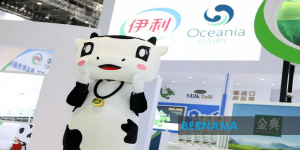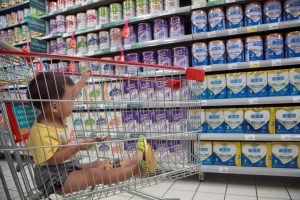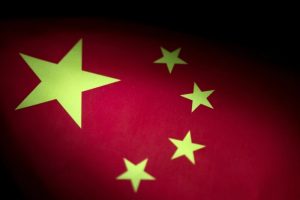
Since the pandemic, Chinese consumers are showing higher awareness about consumption of dairy products and have maintained some of the good habits during the pandemic prevention period, said a survey released by the China Dairy Industry Association and Dutch dairy company Royal Friesland-Campina.
Most consumers believe dairy-based products can help enhance immunity, and the same finds credence in other reports released by the National Health Commission and some Chinese healthcare experts.
In 2019, the average daily dairy intake volume of Chinese was 237 milliliters. This year, the number reached 260 ml. Chinese adults should consume 300 grams of milk or equivalent dairy products every day, according to Chinese Dietary Guidelines.
“Catering to the trend of consumption upgrade, the development and production of high-quality dairy products that meet consumers’ health demand is the direction of industry revitalization,” said Wu Qiulin, chairman of the China Dairy Industry Association.
Out of the 4,200 surveyed respondents in 20 cities, 30.7 percent said they have increased dairy intake since the pandemic. Besides, 11.1 percent increased the variety of dairy intake, and added products like dairy snacks and yogurt, in addition to liquid milk, milk powder and cheese.
Still, Chinese consumers consume relatively low volumes of dairy products, and there is huge room for growth. The report found that the milk quotient of Chinese consumers is 62.7 out of 100 points this year, flat with last year’s reading. China Milk Quotient, an indicator system launched in 2018, is determined through industry research and expert workshops.
Chinese people’s consumption scenarios of dairy products are becoming increasingly diverse. For breakfast, afternoon tea and social gatherings, ready-to-drink dairy products such as liquid milk, yogurt and condensed milk are preferred, the report said.
A considerable number of consumers have expressed their expectations of conveniently packaged dairy products, such as on-the-go dairy products that can be eaten anytime and anywhere. Family-size packaged cheese slices also have significant room for growth, the survey found.
Due to the varied eating habits, there is still a gap between Chinese consumers’ knowledge and intake of dairy products and those from European countries, the United States, Japan and South Korea.
Consumers in 10 countries covered by the survey consume more than 600 ml of dairy products daily. Among them, the daily dairy intake in Russia, Germany, the Netherlands and India exceeds 1,000 ml, the report said.
The daily dairy intake structure of Chinese is significantly different from other countries. Liquid milk is the mainstay, while cheese accounts for 6.4 percent of the total, compared with 40 percent in other surveyed countries.
Industry experts said the education of dairy consumption habits in China is not systematic, especially among children, pregnant women, middle-aged and elderly people, and lactose-intolerant people. The dairy consumption volume is unbalanced in different regions.
“We actively make efforts to popularize knowledge of dairy consumption, and strengthen product research and innovation abilities to provide better nutrition for consumers in China,” said Yang Guochao, senior vice-president of FrieslandCampina China. FrieslandCampina is the largest dairy company in the Netherlands.
In the first quarter, Inner Mongolia Yili Industrial Group Co Ltd, China’s largest dairy maker, achieved sales revenue of 27.36 billion yuan ($4.29 billion), up 32.49 percent year-on-year. During the period, its net profit rose to 2.83 billion yuan, up 147.69 percent year-on-year. The dairy maker will continue to diversify its sales channels and expand business overseas, according to its earnings report.
